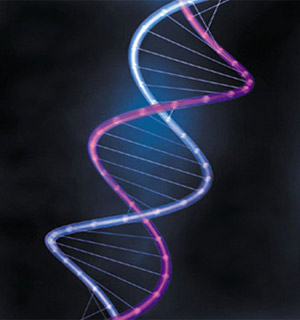
Schizophrenia has a strong heritable component. Researchers have long struggled to find the genetic culprits. The working hypothesis has been that the disease is caused by combinations of common gene variants, each contributing a modest effect.
However, the U.S. research team now provides evidence supporting an alternative model, in which some mutations that lead to schizophrenia are rare (even specific to one patient or family) but individually powerful.
They compared genomic DNA from 150 individuals with schizophrenia and 268 healthy individuals. They found that multiple, individually rare mutations occurred more than three times more frequently among persons with schizophrenia than among controls, and more than four times more frequently among persons with schizophrenia by age 18.
These rare variants were “not random.” They tend to cluster around genes important for brain development, such as those that control neuronal growth and migration.
The findings support the idea that there are any number of types of schizophrenia. Future treatments might therefore be targeted to specific pathways depending on the patient’s genetics.
